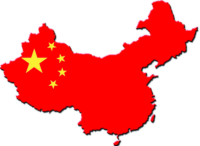China’s Amended Food Safety Law Effective Oct. 1

China has long been a hotbed where food safety scandals run rampant. As of today--October 1, 2015--the country is revising its Food Safety Law for the first time in 6 years.
The new legislation--enforced by the China Food and Drug Administration--will mean stiffer civil and criminal punishments for those found to be in violation. Companies that violate the law will be restricted in terms of future loans, taxation, bidding and land use. Another new facet of the law is that rewards will be increased for those who blow the whistle on food safety violations within China’s borders. There will also be more supervision of food sold online. To raise public awareness, high profile food safety cases might be publicized on live TV.
China has experienced a number of food safety scandals over the years, ultimately losing the confidence of consumers both domestically and internationally. Just a few examples of past food safety scandals in China include:
- Baby formula laced with powdered melamine (2004)
- Pickled vegetables containing industrial-grade salt and unsafe levels of pesticides (2004)
- Soy sauce made from human hair (2004)
- Alleged carcinogens used in frying oil (2007)
- Recycled out-of-date food (2013)
It’s possible that China’s susceptibility to unsafe food is based on a combination of factors:
- With nearly 1.4 billion inhabitants, China has to feed the largest population in the world
- There’s a high percentage of Chinese citizens who have no choice but to grow their own food, a practice that goes unregulated
- Compared to China’s population, there’s not nearly enough space for proper farming, nor are there enough food processors to keep up with demand
These problems have led to distrust amongst Chinese citizens, who generally assume that any food produce in their country is unsafe. As an alternative, they are switching to foods that are organic, or at least imported from other regions.
The U.S. has also been known to block imports from China, particularly if items do not meet certain domestic food safety standards. The U.S. Department of Agriculture has cited poor labeling, drug residues, filth and unsafe additives are reasons for turning away food products originating from China.
Although the country's amended food safety laws are welcome, there is skepticism regarding whether or not the changes will make an impact. The last Food Safety Law initiated in 2009, some argue, did not help to alleviate China's food safety problems.
Looking for a reprint of this article?
From high-res PDFs to custom plaques, order your copy today!





